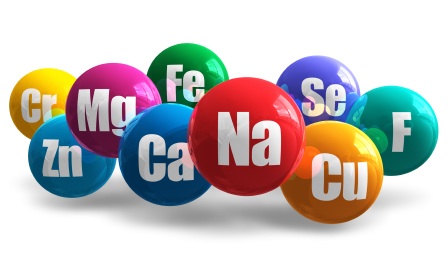
When following any specialized diet for healing, you’ve got to know about supplements.
After speaking with thousands of parents at conferences, webinars, and client appointments over the past ten years, I’ve realized that this is a topic of great confusion for parents.
Awareness of the importance of supplementation typically begins with the issue of calcium. If you’re following a GFCF diet, you’ve likely learned about the need to supplement calcium intake because of the omission of dairy (key calcium source) from your child’s diet. How much to give, and what type of calcium to use are common questions.
These are smart queries because there are very important things to consider with supplementation; such as the current quality of one’s diet, specific nutrient deficiencies, plus the health condition and biochemistry of the individual. And while parents may have heard about calcium, once they start diving into the overall information about supplements, it can become complicated quickly. Calcium is a first step–other important considerations are: magnesium, zinc, vitamins A and D, vitamin B6, vitamin B12, digestive enzymes, probiotics, fatty acids, amino acids, and more.
Calcium

Starting with calcium – Everyone knows that calcium is necessary for strong bones and teeth. But did you know that calcium is vital to nerve conduction, blood coagulation, energy production, immune system, and many other body functions? Research studies indicate that calcium levels are commonly low in children with autism.
Since dairy is usually a main source of calcium, when going casein-free it’s crucial to ensure adequate calcium intake – either through food or supplementation. A child needs about 800-1000 mg of calcium per day from food and supplement sources combined. While I always recommend trying to get calcium through diet, sometimes food sources (like leafy greens) may be scoffed by picky eaters and children in general. So it’s helpful (and sometimes necessary) to consider supplementation to make up the difference.
Magnesium
Another important mineral to consider is magnesium. Magnesium is important for muscle relaxation, energy production, and activating enzymes –there are over 300 functions in the human body that involve magnesium. Parents often notice that supplementing magnesium aids sleep and helps reduce tics, anxiety and depression in their child.
However, with supplements, you must be aware of the interplay between them.For example, calcium inhibits the absorption of magnesium and can cause magnesium deficiency (a key reason to consider magnesium supplementation along with calcium). And while magnesium can be helpful to relieve constipation, calcium intake may contribute to constipation – balancing the two minerals is important.
Magnesium intake requirements vary from about 130- 400 mg (or more) depending on the age and needs of the child. Professionals have differing opinions on how much magnesium to supplement – recommendations for the ratio of calcium to magnesium range widely from 2:1, 1:1, and 1:2.
Vitamins A and D
Getting the proper amount and balance of minerals is important, but it’s equally vital to ensure you’re getting the right fat-soluble vitamins; like vitamins A and D, that are needed for proper absorption of minerals. No matter how many minerals we take, we cannot utilize them without the requisite fat-soluble vitamins. For example, (for those who drink milk) vitamin D is added to milk because we know it is needed to aid absorption of its calcium (and unfortunately is not in adequate amounts in conventional milk).
Fat-soluble vitamins stem primarily from the fat content of animal foods, you don’t find them in plant foods in high amounts because it’s animals that create them. Cows convert beta-carotene to vitamin A, and convert sunlight into vitamin D. Animal fats and foods are rich sources of these vitamins, they include: dairy, beef, lard, bacon, liver, cod liver oil, and fish eggs. Note: Every human culture throughout time included some form of animal protein/fat in their diet.
Supplement your Knowledge and Keep Learning
Of course it’s always best to get our nutrients from whole foods. But considering the issues of food supply access and quality, very selective specialized diets, and common picky eating seen with autism and beyond – food alone is often not adequate.
Some children even have biochemical imbalances that require greater supplementation than food can provide, or there may be a blocked/inhibited biochemical pathway that requires an active form of a nutrient to supply what’s needed.
Ensuring good nutrition for any specialized diet can be complex; there are many considerations of food choices and ways to augment mineral and vitamin needs. Being effective at nourishing hope does require some education on supplements.
All nutrients are crucial, and balance is important. Eating a whole foods diet will go a long way to meeting your child’s needs. Then consider supplementation as needed to reach optimal nutrient amounts for each child.
To learn much more about vitamins, minerals, fatty acids, digestive enzymes, probiotics and more supplement topics – and to get ongoing support and inspiration on your nourishing hope journey…
join the Nourishing Hope Support Club, beginning THIS WEDNESDAY, January 16, 2013. This month’s topic:
SUPPLEMENTS.

 When following any specialized diet for healing, you’ve got to know about supplements.
After speaking with thousands of parents at conferences, webinars, and client appointments over the past ten years, I’ve realized that this is a topic of great confusion for parents.
Awareness of the importance of supplementation typically begins with the issue of calcium. If you’re following a GFCF diet, you’ve likely learned about the need to supplement calcium intake because of the omission of dairy (key calcium source) from your child’s diet. How much to give, and what type of calcium to use are common questions.
These are smart queries because there are very important things to consider with supplementation; such as the current quality of one’s diet, specific nutrient deficiencies, plus the health condition and biochemistry of the individual. And while parents may have heard about calcium, once they start diving into the overall information about supplements, it can become complicated quickly. Calcium is a first step–other important considerations are: magnesium, zinc, vitamins A and D, vitamin B6, vitamin B12, digestive enzymes, probiotics, fatty acids, amino acids, and more.
When following any specialized diet for healing, you’ve got to know about supplements.
After speaking with thousands of parents at conferences, webinars, and client appointments over the past ten years, I’ve realized that this is a topic of great confusion for parents.
Awareness of the importance of supplementation typically begins with the issue of calcium. If you’re following a GFCF diet, you’ve likely learned about the need to supplement calcium intake because of the omission of dairy (key calcium source) from your child’s diet. How much to give, and what type of calcium to use are common questions.
These are smart queries because there are very important things to consider with supplementation; such as the current quality of one’s diet, specific nutrient deficiencies, plus the health condition and biochemistry of the individual. And while parents may have heard about calcium, once they start diving into the overall information about supplements, it can become complicated quickly. Calcium is a first step–other important considerations are: magnesium, zinc, vitamins A and D, vitamin B6, vitamin B12, digestive enzymes, probiotics, fatty acids, amino acids, and more.
 Starting with calcium – Everyone knows that calcium is necessary for strong bones and teeth. But did you know that calcium is vital to nerve conduction, blood coagulation, energy production, immune system, and many other body functions? Research studies indicate that calcium levels are commonly low in children with autism.
Since dairy is usually a main source of calcium, when going casein-free it’s crucial to ensure adequate calcium intake – either through food or supplementation. A child needs about 800-1000 mg of calcium per day from food and supplement sources combined. While I always recommend trying to get calcium through diet, sometimes food sources (like leafy greens) may be scoffed by picky eaters and children in general. So it’s helpful (and sometimes necessary) to consider supplementation to make up the difference.
Starting with calcium – Everyone knows that calcium is necessary for strong bones and teeth. But did you know that calcium is vital to nerve conduction, blood coagulation, energy production, immune system, and many other body functions? Research studies indicate that calcium levels are commonly low in children with autism.
Since dairy is usually a main source of calcium, when going casein-free it’s crucial to ensure adequate calcium intake – either through food or supplementation. A child needs about 800-1000 mg of calcium per day from food and supplement sources combined. While I always recommend trying to get calcium through diet, sometimes food sources (like leafy greens) may be scoffed by picky eaters and children in general. So it’s helpful (and sometimes necessary) to consider supplementation to make up the difference.





I’m curious if you have research to back up the claim that these supplements specifically affect outcomes for autism and ADHD patients. If not, I don’t think it’s appropriate to make it sound like they do.
Yes there are studies both for autism and ADHD. I’ll be presenting much of the research on our Support Club call tomorrow. If you can join us, I’ll be interested in your thoughts. Thanks!
It is sooooo important for people not to shoot from the hip and guess about supplements. We took a slightly different route with my son. We used a naturopath to supervise his supplementation program. She has always used applied kinesiology or muscle testing to determine his supplement needs, and we adjust it on either a 6 week to quarterly basis. We’ve been doing that for almost a decade, and my son has NEVER experienced any of the reactions to supplements that many moms report. He’s also gone from a non-verbal out of control 3 year old to being completely mainstreamed in junior high (with an aide) taking AP classes. I strongly urge parents to find more out about muscle testing, as it is cheap (free), fast and accurate! Although, those who need numbers can always pay for lab tests. . . .